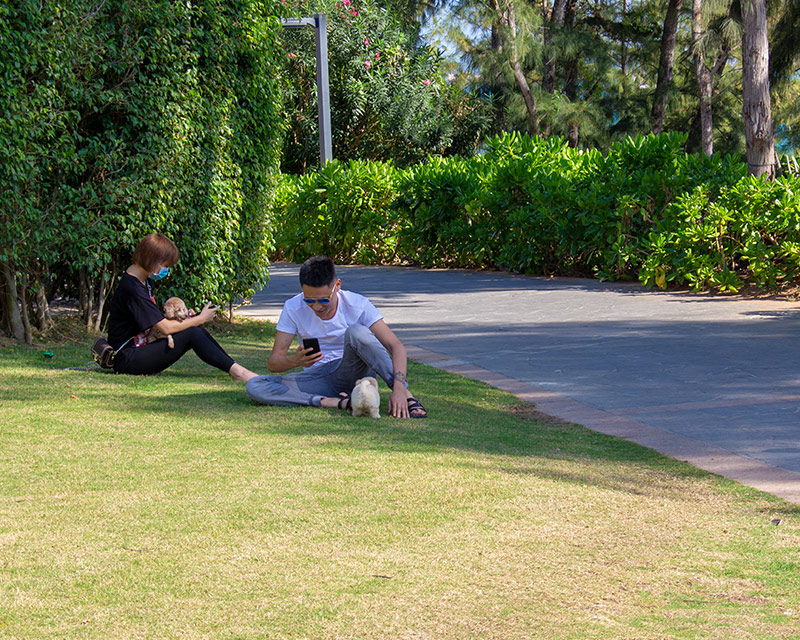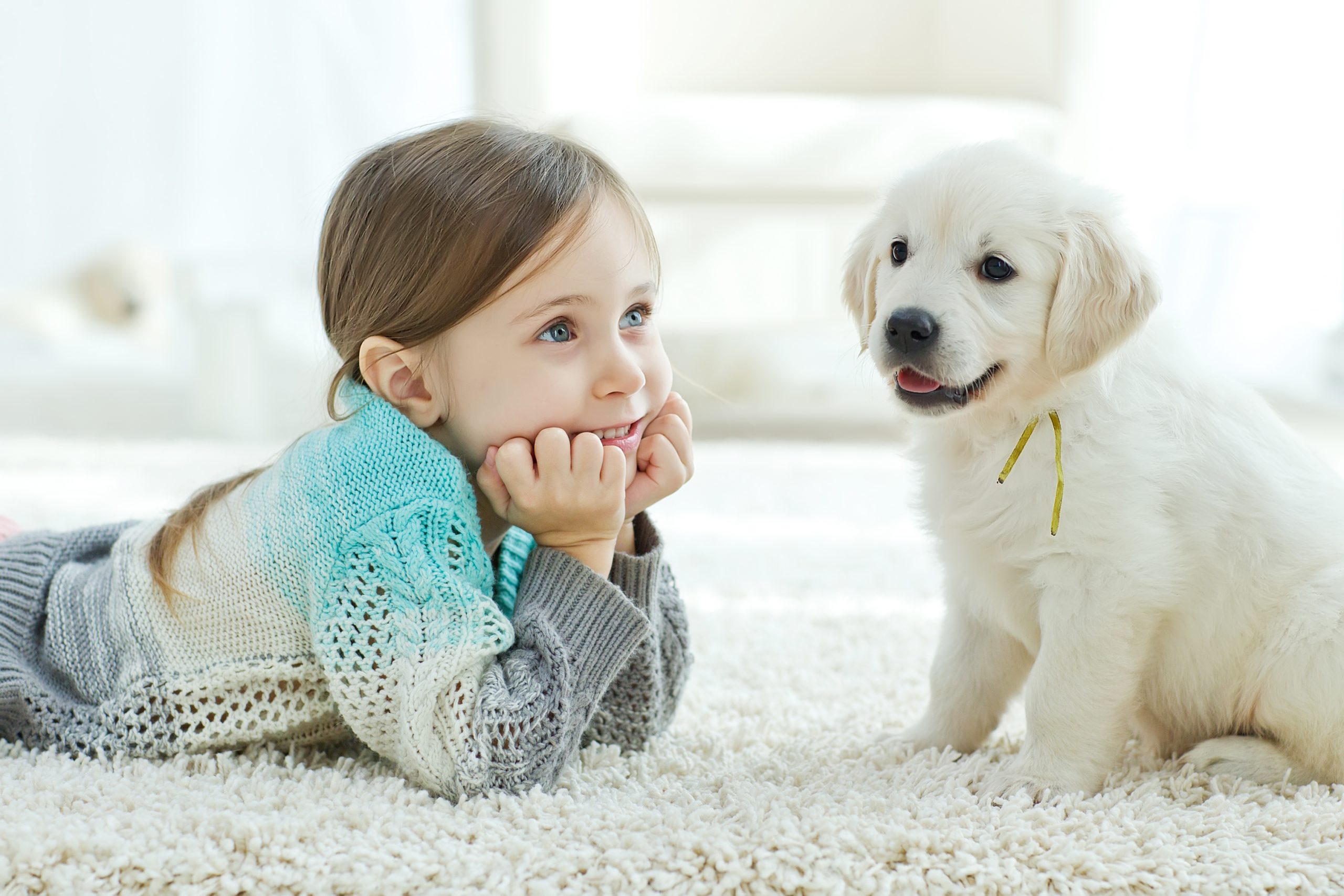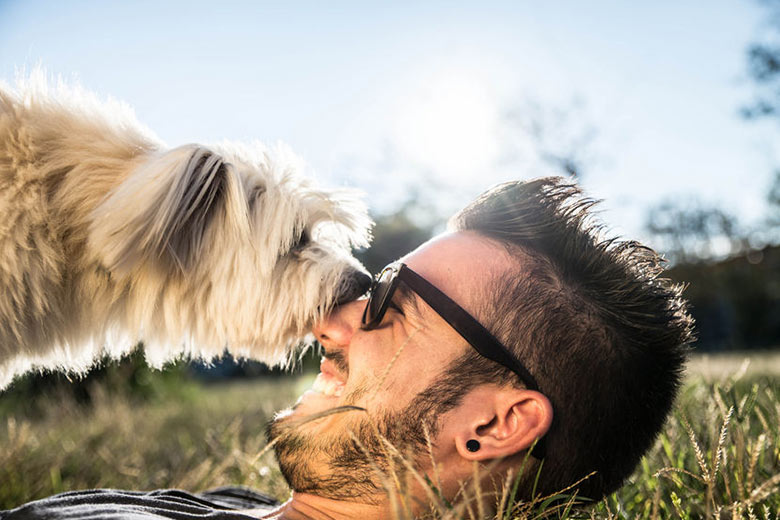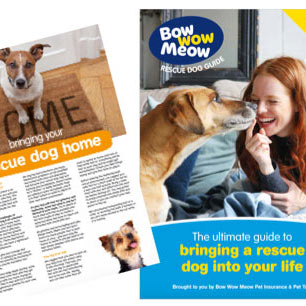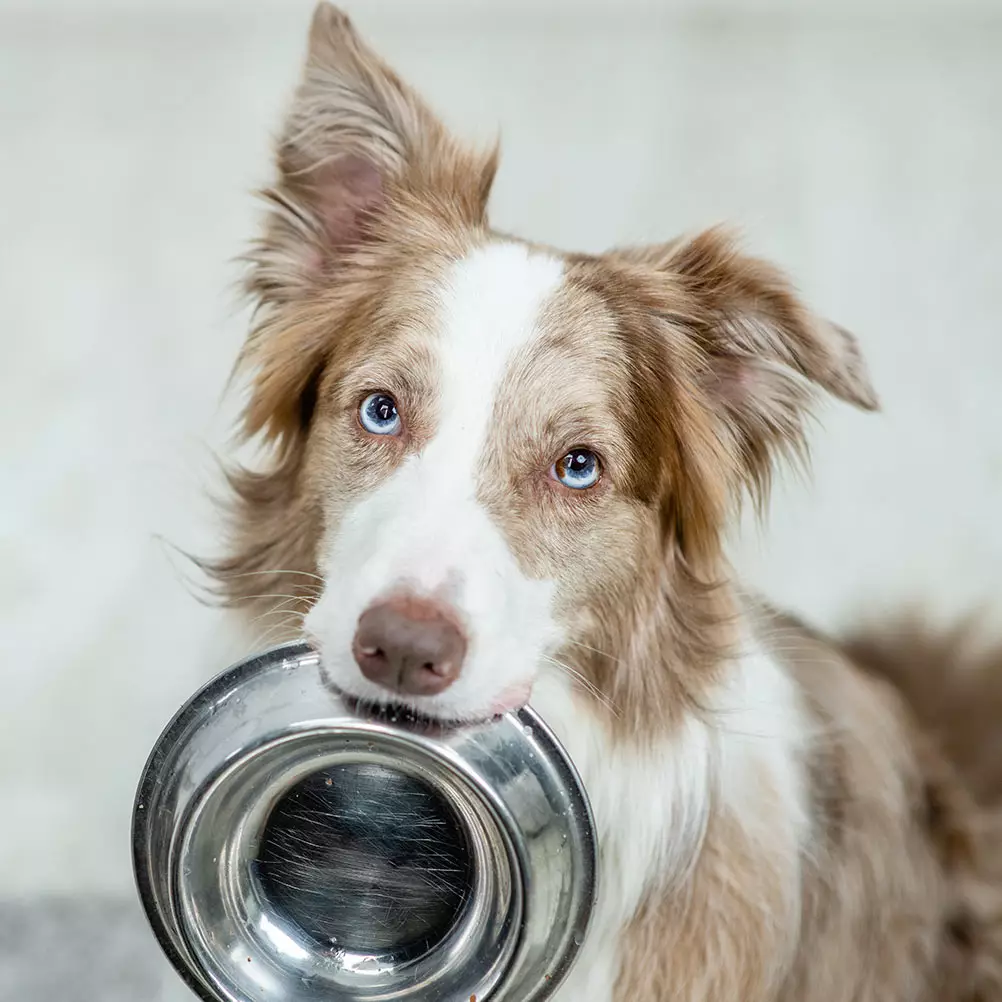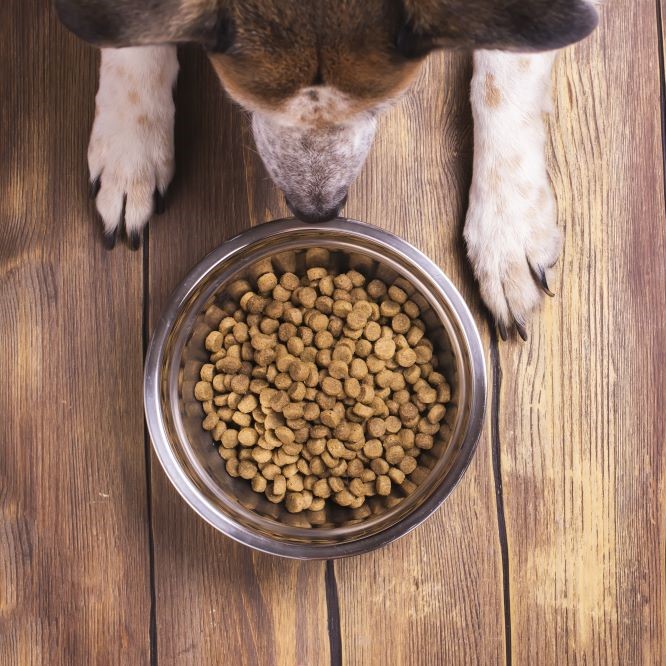Coronavirus COVID-19 and taking care of your pet
We first published this article on 25 March 2020. Given how quickly research & advice are changing during this time, we will try and keep this article as up to date as possible. This is our second revision, published on 07 April 2020.
Since the coronavirus COVID-19 outbreak began in December 2019, there’s been growing concern about the effects of this potentially deadly respiratory illness on humans. In early March 2020, the World Health Organization announced that the COVID-19 novel coronavirus was a global pandemic. In the escalating panic over the spread of the virus, many pet owners are concerned not only about their own health but also the health of their beloved animals. Unfortunately, we are hearing some conflicting and confusing messages regarding the occurrence of coronavirus in dogs, and more recently, coronavirus in cats. In this article, we will examine and explain the current knowledge and understanding about COVID-19 specifically in relation to our closest non-human companions.
What is coronavirus COVID-19?
Sharing your home and your life with animals can also mean sharing illnesses with them. Scientists estimate that more than six out of every 10 known infectious diseases in people can be spread from animals and there are at least 39 significant diseases that people catch directly from animals. These are called zoonotic diseases – meaning that they are caused by bacteria, viruses, or parasites that spread from animals to humans.
The U.S. Centres for Disease Control and Prevention (CDC) explains that coronaviruses are a large family of viruses. Some types of coronaviruses cause cold-like illnesses in people, while others, such as canine and feline coronaviruses, only infect dogs and cats, and do not infect humans. A coronavirus in dogs that usually produces only a mild gastroenteritis in infected dogs was identified in 1971, while more recently, a respiratory coronavirus in dogs has been recognised. In cases of feline enteric coronavirus cats that get infected just get temporary flu-like symptoms such as fever, diarrhea, malaise.
Some coronaviruses that infect animals can evolve and make people sick and become a new human coronavirus. Severe acute respiratory syndrome (SARS) and Middle East respiratory syndrome (MERS) are zoonotic coronaviruses that originated in animals and spread to people – SARS was transmitted from civet cats and MERS from dromedary camels. Animal-to-human transmission is suspected to have caused the current outbreak of COVID-19, having most likely originated at a so called ‘wet market’ in Wuhan, China, where live wild animals were being sold – possibly from a snake, bat or pangolin.

Can pets get coronavirus COVID-19?
Photos of dogs wearing face masks have popped up across print and social media, causing concerned pet owners around the world to ask questions such as: Can dogs get coronavirus? Is coronavirus in cats possible? Can humans get coronavirus from dogs? In answering these questions, it is important to distinguish between Coronavirus as a category of viruses and the novel coronavirus COVID-19 – as we know, there are already canine and feline coronaviruses that can infect our pets.
However, according to the American Kennel Club, this specific novel coronavirus, COVID-19, is believed to not be a threat to dogs. Several global health organisations have also issued advisories saying there is no evidence that pet animals can spread COVID-19 or indeed be infected with it in the same way as humans. The U.S. Centres for Disease Control and Prevention (CDC) has stated that there is no indication that companion animals, including pets, can spread COVID-19 or that they might be a source of infection in the United States. Why then the ongoing concern, the face mask pics, and the increased Googling of terms like ‘coronavirus cats’, ‘can coronavirus in dogs spread to humans’ and ‘Coronavirus cats to humans’?
Fears of the novel COVID-19 coronavirus in dogs have largely been stoked by the fact that two dogs in Hong Kong tested positive for virus after their owners were confirmed to be infected. In the first case, a 17-year old Pomeranian tested “weakly positive” for the virus in early March – believed to be the first time a dog tested positive for the virus. The dog had no symptoms but was put into a two-week quarantine at an animal care facility. Follow-up tests were negative, and the elderly dog was released from quarantine; however, its death was reported a few days later. In the second case, a German Shepherd and a mixed-breed dog from the same household were quarantined after their owner was confirmed as infected with the virus. The German Shepherd tested positive, but the mixed-breed dog did not, and neither animal has shown any symptoms.
Despite these events, the World Health Organization and animal welfare bodies concur that there is no evidence that a dog, cat or any pet can become ill with COVID-19 or transmit the virus. It is debatable whether the dogs were actually infected with COVID-19; rather, they may have tested positive because of “environmental contamination” of their mouths and noses – meaning that the virus could have been living on the dog’s nose or mouth, just like it can live for a time on other surfaces like a doorknob or a countertop.

As far as the Pomeranian’s death is concerned, the cause of death could not be confirmed because the owner would not allow an autopsy to be carried out. However, the stress of being quarantined and separated from its owner, and the age of the dog, are probable causes. The College for Veterinary Medicine at the University of Illinois at Urbana-Champaign said in a post on its website: “The dog likely died from causes other than COVID-19 as it had never displayed any clinical signs of illness.”
The Hong Kong Agriculture, Fisheries and Conservation Department (AFCD) has more recently revealed the latest positive serology test results of the Pomeranian, which indicate that the dog had developed an immune response to the viral infection with antibodies found in the blood. Veterinary experts and scientists have concluded that these results further supported that the Pomeranian had been infected with the COVID-19 virus.
Hong Kong health officials have continued to test dogs owned by people infected with the coronavirus. Officials there have stated that cases of infection in dogs appear to be infrequent. As of late March, the AFCD “has conducted tests on 17 dogs and eight cats from households with confirmed COVID-19 cases or persons in close contact with confirmed patients, and only two dogs had tested positive for the COVID-19 virus.”
With regard to our feline friends, there have been recent reports that a cat in Belgium and a Domestic short-haired cat in Hong Kong have tested positive for the virus, in what appear to be cases of infected owners transmitting the virus through maintaining close contact with their animals. And while the Hong Kong dogs and cat were asymptomatic, the Belgian cat experienced vomiting, diarrhoea and respiratory signs.
It appears that these four known occurrences of pets testing positive for the COVID-19 virus are isolated cases associated with close contact with infected humans. There is no evidence that dogs or cats are playing a role in the spread of this essentially human disease.
Can humans give animals coronavirus COVID-19?
According to the World Organisation for Animal Health (OIE), now that COVID-19 virus infections are widely distributed in the human population there is a possibility for some animals to become infected through close contact with infected humans. As we know, several dogs and cats have tested positive to COVID-19 virus following close contact with infected humans. It also appears that ferrets may be susceptible to contracting the virus from their owners, and in recent developments, a tiger at the Bronx Zoo tested has positive for COVID-19, while three other tigers and three lions have exhibited clinical signs that include a dry cough and decreased appetite. It is believed that the zoo’s cats were infected by a carer who was asymptomatically infected or had not yet developed symptoms.
The United States Department of Agriculture (USDA) has made the following statement:
“Anyone sick with COVID-19 should restrict contact with animals, out of an abundance of caution, including pets, during their illness, just as they would with other people. Although there have not been reports of pets becoming sick with COVID-19 in the United States, it is still recommended that people sick with COVID-19 limit contact with animals until more information is known about the virus. If a sick person must care for a pet or be around animals, they should wash their hands before and after the interaction.”
Studies are underway worldwide to better understand the susceptibility of different animal species to the COVID-19 virus and to assess infection dynamics in susceptible animal species. Despite these few known cases of animals contracting the virus from humans, it is still believed that human to animal transmission is exceedingly rare. Vet diagnostic company IDEXX has tested approximately 4000 canine and feline samples in Canada, USA and EU, including areas with high rates of COVID-19 in the human population and all samples have been negative to date.
The World Health Organization reports that currently there is “no evidence that companion animals/pets such as dogs or cats can be infected with the new coronavirus.” Shelley Rankin, a microbiologist at the University of Pennsylvania School of Veterinary Medicine, Philadelphia, explains that the virus spreads from humans to humans and there is no research to support human to animal spread at this time; however, cats and dogs are mammals too. They have many of the same types of receptors on their cells that we do – so, theoretically, the virus could attach to these receptors. But will COVID-19 enter their cells and replicate? Rankin says, probably not, although a lot more research is necessary into the potential of the virus to infect animals.
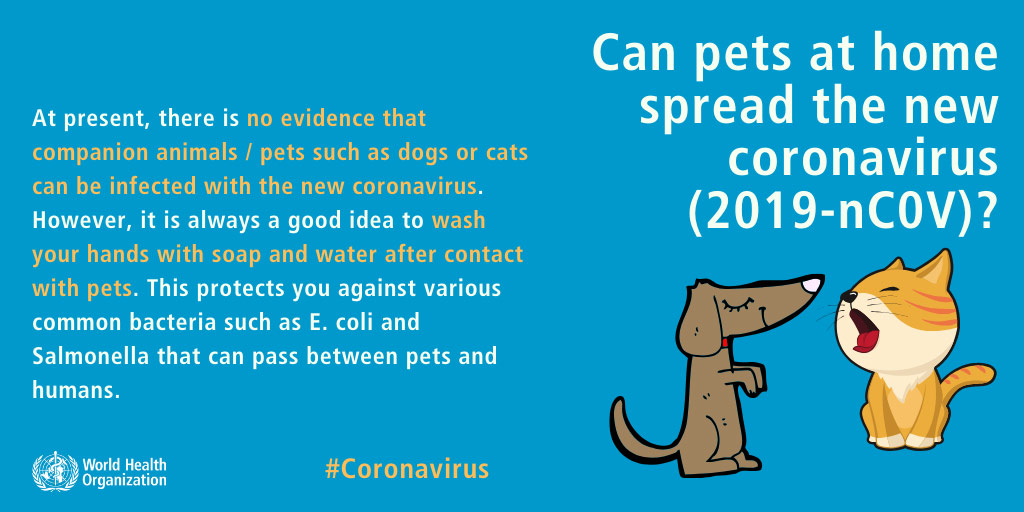
The American Kennel Club quotes Li Lanjuan, an epidemiologist and representative of China’s National Health Commission, who cautions pet owners in China to be vigilant about their own health and the health of their pets: “If pets go out and have contact with an infected person, they have the chance to get infected. By then, pets need to be isolated. In addition to people, we should be careful with other mammals especially pets.”
Dr. Jerry Klein, Chief Veterinary Officer for the American Kennel Club, goes on to say that, “The CDC has not reported any cases of pets or other animals becoming infected with COVID-19 in the United States or anywhere else in the world, including hotbeds like Italy.” However, this situation could change, and Dr. Klein urges common sense best practices when it comes to our pets. To be on the safe side, authorities are warning people who are infected with COVID-19 to limit contact with their pets. If there are any changes in the health condition of the pets of infected people, advice from a veterinarian should be sought as soon as possible.
Can your pets transmit coronavirus COVID-19?
Although COVID-19 is believed to have originated from an animal source – possibly a snake, bat or pangolin from an exotic animal food market in Wuhan, China — domestic dogs and cats themselves do not appear to be carriers. Currently, the consensus is that there is no evidence that our pets pose a risk of spreading coronavirus. However, we are learning more about this virus each day and what is accepted thinking today may change within a matter of months, weeks or even days.
At present, The U.S. Centres for Disease Control and Prevention (CDC) and multiple human and animal health organisations all agree there is no evidence at this point to indicate that pets become ill with COVID-19 or that they spread it to other animals, including people. The World Organisation for Animal Health (OIE) also emphasises that the current spread of COVID-19 is the result of human to human transmission and there is no evidence pets spread the disease, or even get sick themselves – “therefore, there is no justification in taking measures against companion animals which may compromise their welfare”. Pet owners need not be overly concerned and under no circumstances should they abandon their pets. If for some reasons an owner is no longer able to look after her pet, she should contact her local animal welfare organisation for advice and assistance.
There remains the question of the two dogs and cat who have tested positive for the virus – were they in fact infected with the virus, and if so, can humans get coronavirus from dogs? The Society for the Protection of Animals (SPCA) in Hong Kong said being infected was not the same as being infectious and capable of spreading the virus and that there is no evidence that companion animals can transmit the disease to humans. However, be aware that a pet could possibly become a fomite (a surface that can transmit disease) for COVID-19, for example if an infected person coughs or sneezes on their hand and then pats the animal. If another person then touches the animal, the virus could potentially spread to him or her.
Let’s not get into a panic about handling, touching or patting our pets though. According to the American Veterinary Medical Association, petting a dog’s fur is a low risk. The AVMA’s Chief Veterinary Officer Gail Golab says, “We’re not overly concerned about people contracting COVID-19 through contact with dogs and cats.” And there’s science behind that – the virus survives best on smooth surfaces, such as countertops and doorknobs, while porous materials, such as pet fur, tend to absorb and trap pathogens, making it harder to contract them through touch.
Should pets be quarantined?
At this stage, quarantining of pets is not largely recommended or practised, and many parts of the world do not have quarantine facilities available for pets. Hong Kong is one of the exceptions, and in addition to testing the pets of people with confirmed COVID-19, government facilities are available for the quarantining of animals. Hong Kong’s Agriculture, Fisheries and Conservation Department (AFCD) strongly advises that mammalian pet animals including dogs and cats from households with infected persons or those who have had close contacted with others infected with the virus, should be put under quarantine, to safeguard public and animal health.
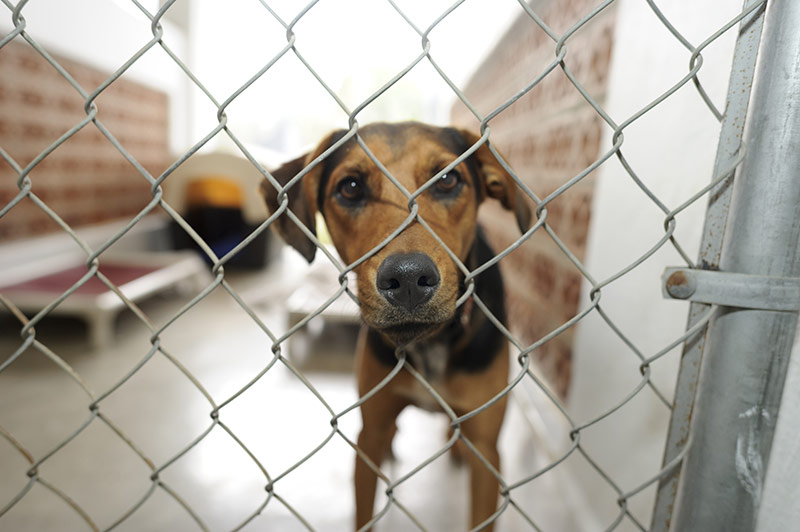
Shelley Rankin suggests that, just like humans, some pets might be quarantined at a hospital, shelter or doggy day care. Alternatively, if they had the virus but weren’t sick, they could possibly be quarantined at home, in a bedroom away from other people and animals. Their carers would need to wash their hands frequently, wear a mask when entering the room and generally limiting their contact with the animal as much as practically possible.
Can pets be tested for coronavirus COVID-19?
Vet diagnostic company IDEXX said thousands of dogs and cats have been tested for the novel coronavirus COVID-19 as part of a validation of a veterinary diagnostic test for the coronavirus COVID-19 – and so far, none have tested positive for the virus. Leading health authorities do not recommend testing pets for the COVID-19 virus as it is primarily transmitted person to person. For dogs or cats presenting with respiratory symptoms, the recommendation is to contact a veterinarian to test for more common respiratory pathogens.
Given that only two asymptomatic cases of COVID-19 infection have been identified in dogs thus far, testing pets for the virus is not a top priority at present, and pet owners in many parts of the world may struggle to find testing facilities for their animals. This situation may change, however, if we start seeing more cases like the Hong Kong Pomeranian and German Shepherd.
The Australian Veterinary Association has stated that at this stage there is no indication that testing of companion animals is necessary in Australia.
What can be done to protect pets?
It is important to include your pets in your precautions and preparedness plans, including what will happen to them if you become ill with COVID-19 and require self-isolation or hospitalisation. The American Society for the Prevention of Cruelty to Animals (ASPCA) and other relevant organisations have provided tips on how to keep animals safe and healthy as that country – and the world – deals with the spread of coronavirus.
Here are some suggestions you can implement to help keep your pets safe during these uncertain times:
Build an emergency kit
- Include a 30-day supply of pets’ medications and at least two weeks’ worth of food and other supplies, such as kitty litter.
Update your pets’ contact details
- Make sure all pets wear collars and tags with up-to-date identification info: pet name, telephone number and urgent medical needs
- Write your pet’s name, your name and contact information on carriers
- Update your pets’ microchip contact details if these have changed (the easiest way to do this in Australia is to search Pet Address using your pet’s microchip number, and you will be redirected to the database that lists your pet’s microchip number where you can fill out an online form or contact them telephonically).
Designate an Emergency Caregiver
- Proactively identify someone who could help with their short- or long-term care in the event you are unable to care for your pets – consider a family member, friend, neighbour or a boarding facility.
Create a Pet Dossier
- If your emergency caregiver’s assistance is needed, make it easier for them by having all your pets’ information in one place.
- Include information about their habits, food preferences, medical conditions and medications taken, veterinarian contact information, medical and vaccination records, and any behavioural tendencies.
Stock up on pet food
- You don’t have to buy out the store, but it’s a good idea to have enough stock of medicines and non-perishables for around 4 weeks, so you can avoid crowds if there’s an outbreak.
Practice good hygiene
- Wash your hands with soap and water before and after contact with any animals, their food or supplies.
- Avoid kissing and hugging your pets and allowing them to lick you or others.
- Maintain a clean and hygienic household environment.
- Clean up properly after your pets’ toileting.
Dog walking, dog parks and social distancing
Physical and mental exercise are extremely important for dogs and dog owners alike – more so during these uncertain times than ever. Whilst we have been instructed to stay at home unless undertaking one of a small number of essential activities, exercise is a valid reason for being outdoors. However, many dog owners may be worried about the restrictions around walking their pets and going to dog parks under the new social distancing rules.
While the situation may change at any time, currently, walking a dog in the park is still permitted and considered safe as long the owner maintains the four-square metre rule with other humans. As long as you are feeling healthy and well, and are not self-isolating, you should plan to continue walking your dog daily, although with added safety measures. Before taking a walk, check your local regulations. Some local councils may have closed dog parks or placed restrictions on their use. Adjust your dog walking schedule, time of day or route if you notice high volumes of other dog walkers and are concerned about potential social distancing breaches.
If you normally take your dog to a crowded dog park or dog run, consider taking a break from such locations. If off-leash time at the park is essential for your dog, try to go during during off-peak hours, when there are less likely to be too many people there. Avoid touching any surfaces, as dog parks can often be breeding grounds for germs, and do not make physical contact with other, unknown dogs during this time. It is also recommended to avoid having other people pat your dog or even get too close to her. It is possible that someone infected with coronavirus could pat the dog, and the pet could return home with residues of the virus still on its coat. Be sure to should wash your hands thoroughly for at least 20 seconds before and after each walk or visit to the dog park and consider carrying around a pocket-sized bottle of hand sanitiser.
If you are self-isolating or sick, do not leave your house or place of isolation, whether to walk your dog or for any other reason. You will need to ask other people who are healthy for help with exercising your pet, or if you have the means, you could employ the services of a dog walker.
‘Social distancing’ in a nutshell:
- Keep at least 1.5 metres or 2 arm-lengths from others when exercising your dog.
- Stay away from public places, such as dog parks, during high-traffic times.
- Keep interaction between your pet and other people to a minimum.
Contact your vet if you have any concerns
Australian pet owners can rest assured as the Minister for Agriculture has designated vets an Essential Service during the COVID-19 crisis, stating: “The Federal Government considers the role of veterinarians essential to the agricultural sector and therefore to our nation’s food security but also in protecting companion animals and our nation’s wildlife.”
The Federal Government has not put any restrictions on veterinarians other than the practice of social distancing and hygiene practices during the COVID-19 crisis in order to reduce gatherings at veterinary practices and reduce the spread of the virus. Whilst veterinary services are considered an essential service, it is still important for veterinarians to consider telemedicine consultations where appropriate, depending on the pets’ condition and other factors. Vets are requesting pet owners to contact them for advice on what is best for their particular situation.
The Australian Veterinary Association has provided guidance for self-isolating or sick pet owners around how to safely access veterinary care for their animal whilst in self-isolation. If the pet must be seen in person, this would most probably entail having it brought to the clinic by someone else who is not self-isolating or ill, with the owner being updated by phone during or after the consultation. Pet owners who break self-isolation to attend a veterinary appointment seriously risk compromising the health and welfare of veterinary clinic staff and anyone else they come into close contact with. If your pet becomes sick, obtain advice from a vet as soon as possible.
What you can do with your dog when in self-isolation (self-quarantine)?
At present, in Australia, you must self-isolate for 14 days if any of the following applies (note that the Australian government uses the terms self-isolation and self-quarantine interchangeably):
- You have COVID-19
- you have been in close contact with a confirmed case of COVID-19
- you arrived in Australia after midnight on 15 March 2020
Find out what the self-isolation or self-quarantine criteria are where you live – in Australia, you can find the latest information at https://www.health.gov.au/. In many places, when you are in self-isolation you must stay at home to prevent the possible spread of the virus to others and, therefore, are not able to walk your dog. In this case, you may need to call on a family member, dog walker, neighbour or friend to help.
Toileting your pet can also be problematic. If you have your own backyard, things are much easier, however, if you live in an apartment and have to take your dog out on shared premises, be sure to maintain social distancing, wear a mask if possible, and take hand sanitiser, antibacterial wipes and/or or tissues to touch any door handles, banisters, elevator buttons etc. Another option is to use pet loos, with real or fake grass (see https://get.pottyplant.com.au/ and https://www.readypetgo.com.au/the-pet-loo-dog-toilet).
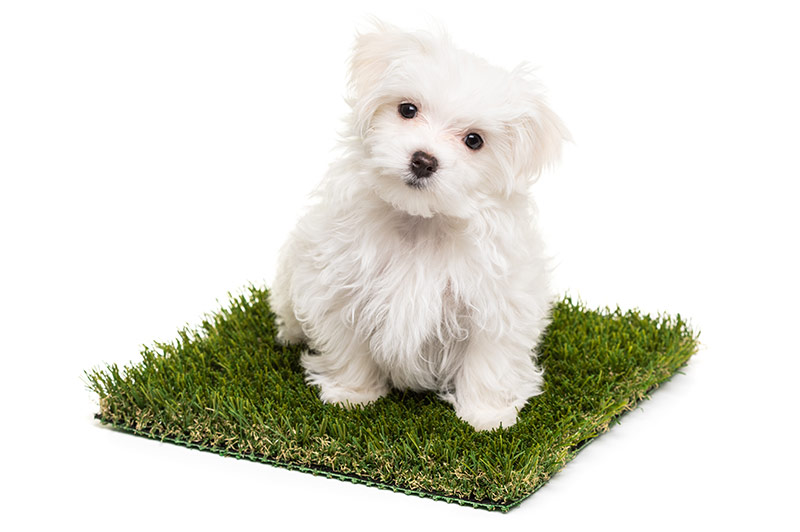
Keep your pets mentally and physically stimulated as much as possible. Here are some suggestions:
- Play indoor games with your dog to engage his mind and tire him out – there is a saying that a 5-minute training session or mental workout for your dog is equivalent to a 20-minute walk.
- Hide treats and let your dog search for them.
- Create an agility or “parkour” course.
- Teach your dog some new tricks, e.g. to find your phone or keys, or to put its toys away.
- Get on top of any training you always wanted to do
- Read a book to your dog
- Watch a movie or TV together
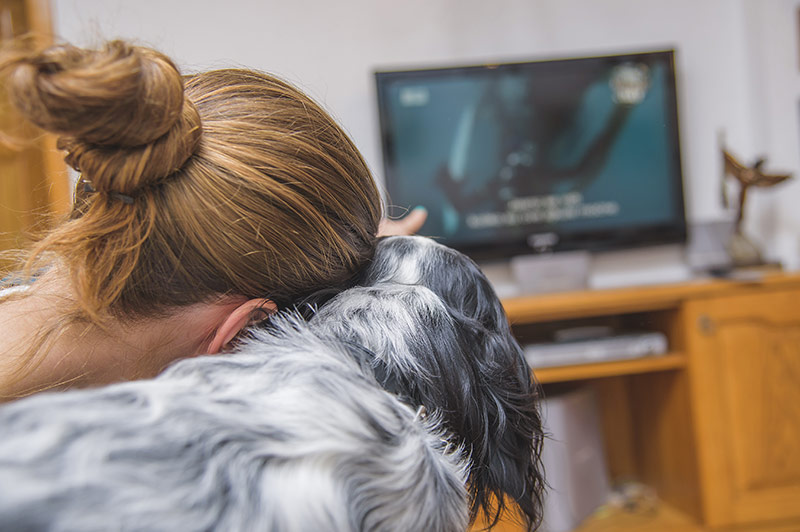
What you should do if you are infected with COVID-19?
People who have contracted COVID-19 should quarantine themselves from their family members and pets, avoid close contact with their pets and have another member of their household care for their animals.
The U.S. Centre for Disease Control and Prevention (CDC) advises that if you are sick with COVID-19, either suspected or confirmed, you should restrict contact with pets and other animals, just like you would around other people. This can help ensure both you and your animals stay healthy.
The Australian Veterinary Association advises pet owners who are infected or in self isolation to keep their pets with them. If the animal has been exposed to an infected human, keep him or her within the affected household, but continue to minimise contact with the animal, particularly avoiding any close contact.
Avoiding contact with your pet includes petting, snuggling, being kissed or licked, and sharing food. If you must care for your pet or be around animals while you are sick, wear a facemask, maintain good hygiene practices and be sure to wash your hands before and after you interact with them. However, if possible, have another member of your household care for your pets while you are sick, or ask a family member, friend, neighbour or boarding facility to help with short- or long-term care. Be sure to inform them of your pet’s habits, food preferences, medical conditions and medications taken, veterinarian contact info, medical and vaccination records and behavioural tendencies.
According to the World Organisation for Animal Health (OIE), animals belonging to owners infected with COVID-19 should be kept indoors as much as possible and contact with those pets should be avoided as much as possible. While there is no evidence at this stage of a COVID-19 infection spreading from one animal to another, keeping animals that test positive for COVID-19 away from unexposed animals should be considered best practice.
Bow Wow Meow Pet Insurance covers costs for emergency boarding
We sincerely hope that you and your family members are not impacted with COVID-19. However, if required, Emergency Boarding for your pet under Bow Wow Meow policies is generally covered if you become sick with COVID-19 and require hospitalisation for five or more consecutive days. Please note this is subject to your selected policy, benefit limits and relevant terms and conditions. Your policy Certificate of Insurance details if Emergency boarding is available under your policy and the available sub-limit which is the maximum benefits which are eligible for each pet each policy period for these expenses. Please refer to your policy PDS and COI (Certificate of Insurance) for further details and the terms and conditions related to the Emergency Boarding benefits.
What you should do if you have to go to hospital?
- Inform – or leave details of – all potential emergency carers.
- Leave a pet “dossier” that list your pets’ habits, food preferences, medical conditions and meds taken, veterinarian contact info, medical and vaccination records and behavioural tendencies.
Is it a good time to adopt a pet?
With stringent social distancing rules enforcing Australians to work from home where possible and schools and universities switching to on-line learning, many more of us are house bound than at any other time in recent history. Self-isolation can take a toll on our mental health, and particularly for those living alone, pets can provide remarkable amounts of comfort and happiness, helping us to combat feelings of isolation and loneliness.
Celebrity vet Dr Chris Brown is urging Australians to consider fostering and adopting rescue pets to help us cope in these troubling times: “Pets provide such a nice distraction away from the worries of the world,” he says. “In their world, they’re having the time of their lives. To have their owners at home is potentially the greatest thing to happen in their lives!”
Many Australians confined to their homes are indeed looking to adopt a new pet, with cat and dog shelters having received big spikes in applications for fostering and adoptions in the past few weeks. But on the flip side, an economic downturn could see more pets abandoned, and these same shelters are bracing for a rise in pets being surrendered as people start to feel the financial impacts of loss of employment. There is also the possibility of animal shelters having to close, as has happened overseas, warns Dr Chris.
If you are considering adoption, don’t be put off by the news headlines about the current lack of availability – contact your local animal shelter and discuss the available options. If your circumstances are too uncertain to commit to adoption, you could instead consider fostering a rescue animal. “We always have a need for foster carers, but many people can’t because of time constraints, but now do have that time they are going to be at home,” explained Melinda Phipps from Animal Welfare League Queensland.
Being confined to your home means you can help animals in need and at the same time boost your own mental well-being. However, if you are experiencing financial difficulties and are struggling to provide for your pet, please seek advice and assistance from family members, neighbours or friends for temporary help and get in touch with your local Animal Welfare Organisation for further advice or assistance.
Helping pet owners cope during a time of crisis
If your current circumstances don’t allow you to adopt or foster a pet, but you’re still eager for the mental health boost that an animal can provide, consider that pet owners might need your help right now. For example, there are probably people in self-isolation in your neighbourhood or community who are unable to take their dog for a walk or a play in the park and who may not have the means to pay a service provider to do so. If you have time on your hands, consider offering to help with pet sitting and dog walking.
Pet owners are being encouraged to make provisions for their pets in case they need to be hospitalised. If you have an elderly family member or neighbour with a pet, they may be very worried about who will take care of it if they are too ill to do so – consider offering to look after the animal in such circumstances, or at least taking on some of its care requirements. If you have the means, you could also consider purchasing pet food if your neighbour or family member appears to be suffering from financial stress.
A few important points to keep in mind
- If you’ve ever thought about fostering a pet, now is the time to do it – animal shelters in some places have put out messages asking people to consider becoming pet fosters to prepare for any impact coronavirus may have on their ability to take care of the animals.
- Dogs do not need a face mask to protect themselves against the novel coronavirus COVID-19.
- If you are still concerned or notice a change in your dog’s health, speak to a veterinarian.
- And the most important protection of all: under no circumstances should owners abandon their dogs, cats, or other pets because of COVID-19 fears.
In summary
Since the outbreak of the COVID-19 pandemic, people are concerned about the health of their community and their loved ones, including their pets. Whilst the outbreak of COVID-19 is suspected to have originated from the transmission of a coronavirus from an animal to a human, there is currently no evidence that a dog, cat or any pet can become ill with COVID-19 or transmit the virus.
However, they could possibly become a fomite that can transmit the disease. So including your pet in the normal social distancing rules is advised.
If you are self-isolating and healthy, your pet will provide you with company and probably love all the extra attention it is getting. Keep routines up as much as possible and enjoy this period of quality time together at home.
Try and keep a supply of enough pet food, litter and medication to last a few weeks.
If you happen to fall ill with COVID-19, try and avoid contact with your pet as much possible, just in case. If you get hospitalised, make sure you have a pet dossier ready for that occasion. Bow Wow Meow can help with costs for emergency boarding if you are hospitalised for 5 or more days.
Most important, stay healthy and safe and make sure you are well informed about the current COVID-19 situation and any government regulations in your area.
Take care & stay safe!
Your team at Bow Wow Meow
A pet insurance policy with Bow Wow Meow will help ensure you can always afford to give your pet the best medical treatment for accidents and illness. We also help cover your pet’s Emergency Boarding when you need it (conditions apply).
- Find out more about our pet insurance options for dogs
- Find out more about our pet insurance options for cats
- Get an instant online pet insurance quote



